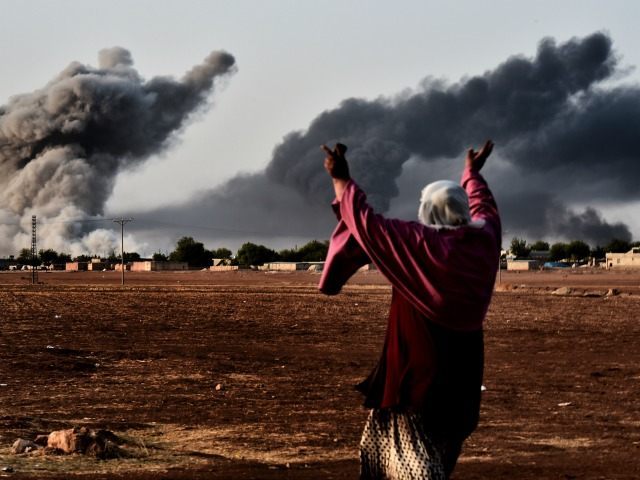“The Turkish government’s onslaught on Kurdish towns and neighborhoods, which includes round-the-clock curfews and cuts to services, is putting the lives of up to 200,000 people at risk and amounts to collective punishment,” Amnesty International said this week about the clash between Turkey and the Kurdistan Workers Party (PKK), particularly its militant youth wing, the Patriotic Revolutionary Youth Movement (YDG-H).
AI said its research revealed “extreme hardships” suffered by the civilian population, including security forces blocking ambulances from entering areas under curfew, cuts to water and electricity supplies, lack of food, and a state of near-paralysis in neighborhoods effectively under siege.
One resident who spoke to Amnesty spoke of a relative killed in his own home during a battle in his neighborhood, and left to rot for 12 days before the family could retrieve him for burial. Another said his family had to make do without water for 20 days, and without electricity for 15.
AI reports over 150 residents have been killed in areas under curfew, including “women, young children, and the elderly.” Both sides in the conflict are criticized for inflicting civilian casualties: Turkish police and military for using heavy weapons and sniper rifles, the PKK for attacks that indiscriminately kill civilians, such as the January 13 bombing of a police HQ that killed a police officer and five civilians, including two young children.
The PKK is a U.S.-designated terrorist organization that adheres to a Marxist ideology. Conflicts with the PKK have killed an estimated 40,000 people.
As for the combatant death toll, Deutsche Welle relays estimates from the Turkish military that about 600 PKK militants have been killed since a two-year cease-fire ended last July, along with “dozens of members of the security forces.” The PKK demands an autonomous region for Kurds in southeastern Turkey, while the Turkish government regards the PKK as a terrorist organization.
The Amnesty International report also criticizes the Turkish government for blocking independent observers, reporters, and human-rights activists from entering curfew areas, and harassing those who speak out against government abuses. Last week, Amnesty described the detention of 19 academics who criticized Turkish military operations in the Kurdish southeast as “a new assault on the imperiled right to freedom of expression.”
Amnesty, in turn, castigates the international community for failing to speak out against Turkish censorship. Amnesty International’s Europe and Central Asia Program Director, John Dalhuisen, suggested this reticence stems from the West’s need for Turkish help in containing the Syrian civil war, as well as the resulting migrant crisis.
“While the Turkish authorities can take legitimate measures to ensure security and arrest suspects, they must comply with their human rights obligations. The operations currently being conducted under round-the-clock curfews are putting the lives of tens of thousands of people at risk and are beginning to resemble collective punishment,” Dalhuisen declared.
This is not the first time Amnesty International has criticized the Turkish government for its crackdown on the PKK. On a previous occasion in August, the organization claimed Turkish airstrikes against PKK positions in the Kandil Mountains killed eight residents and injured at least eight others, including a child.
“The recent attacks in Kandil maimed, killed, and displaced residents, destroying homes and terrifying locals in an area where no military targets appeared to be present,” said an Amnesty adviser who visited the area, adding that the casualties raised “serious concerns about the lawfulness of the attack.”

COMMENTS
Please let us know if you're having issues with commenting.